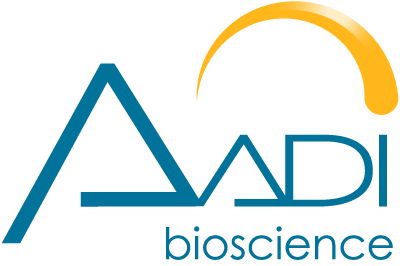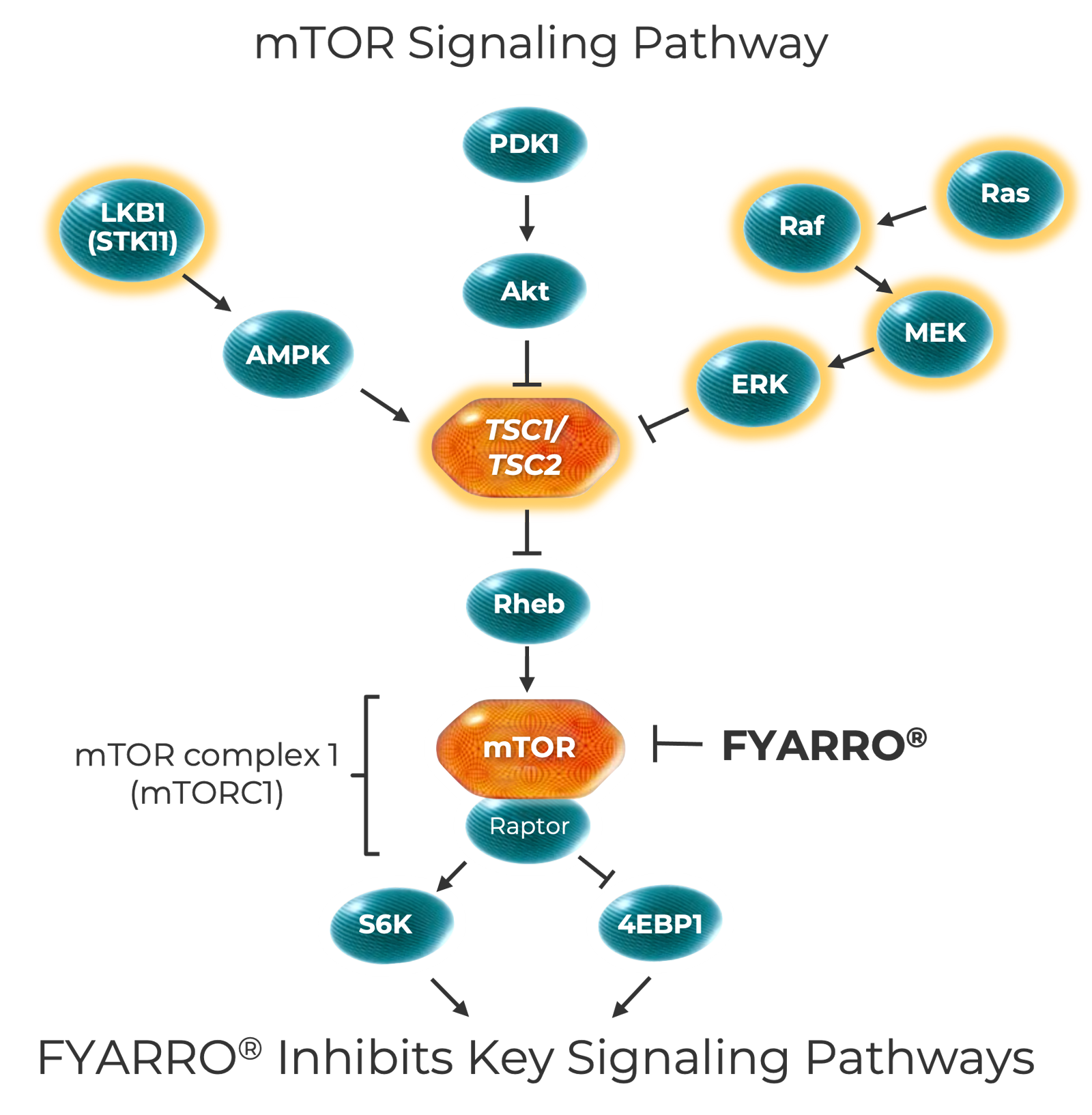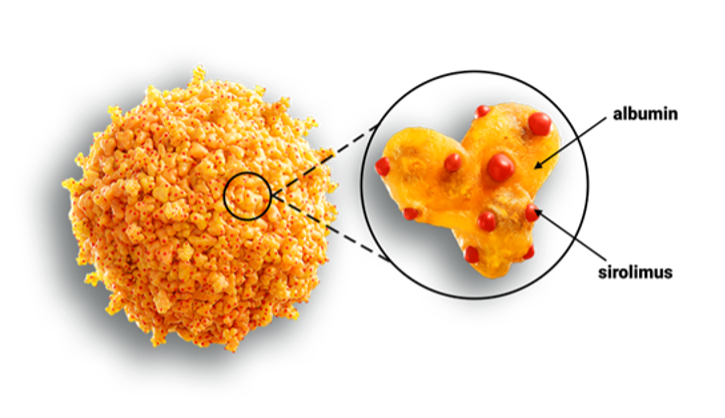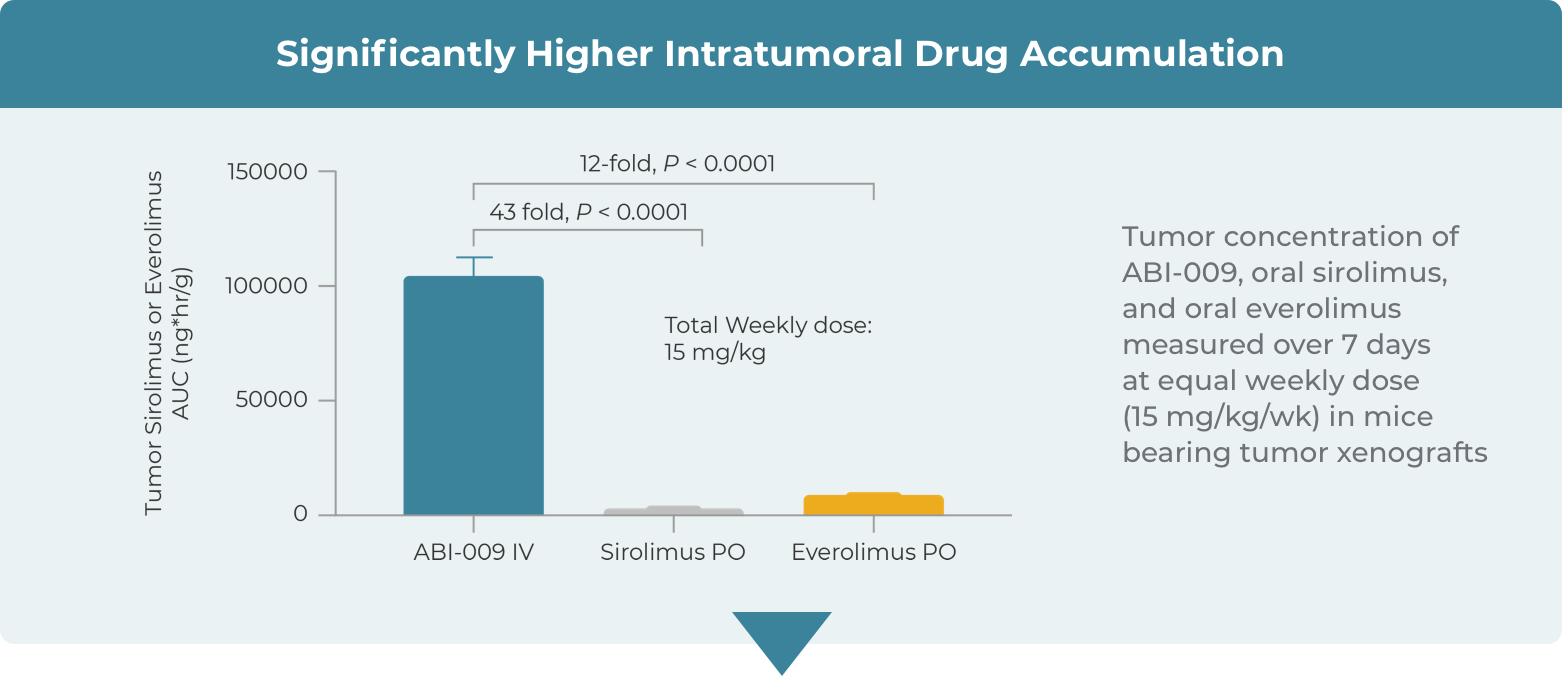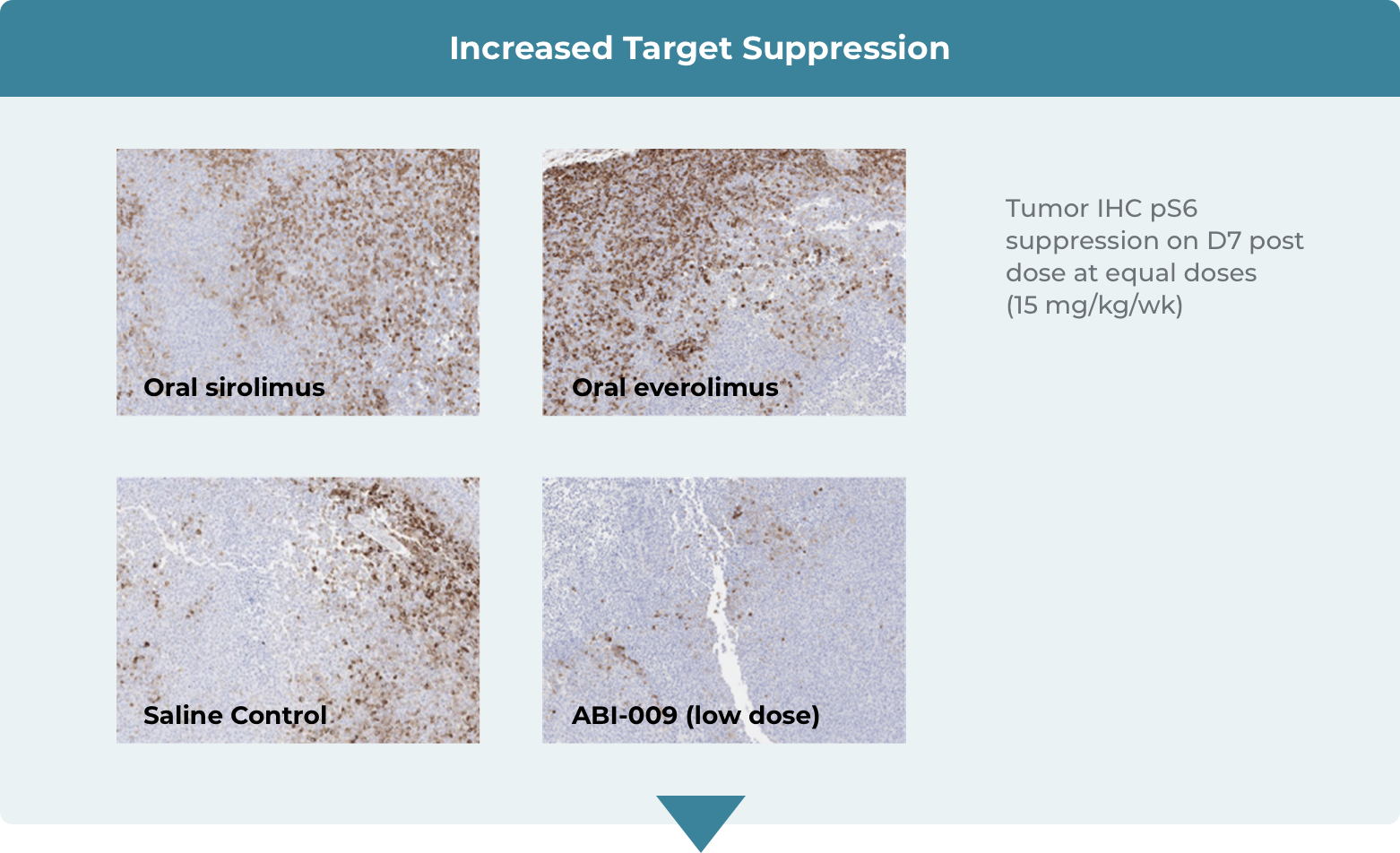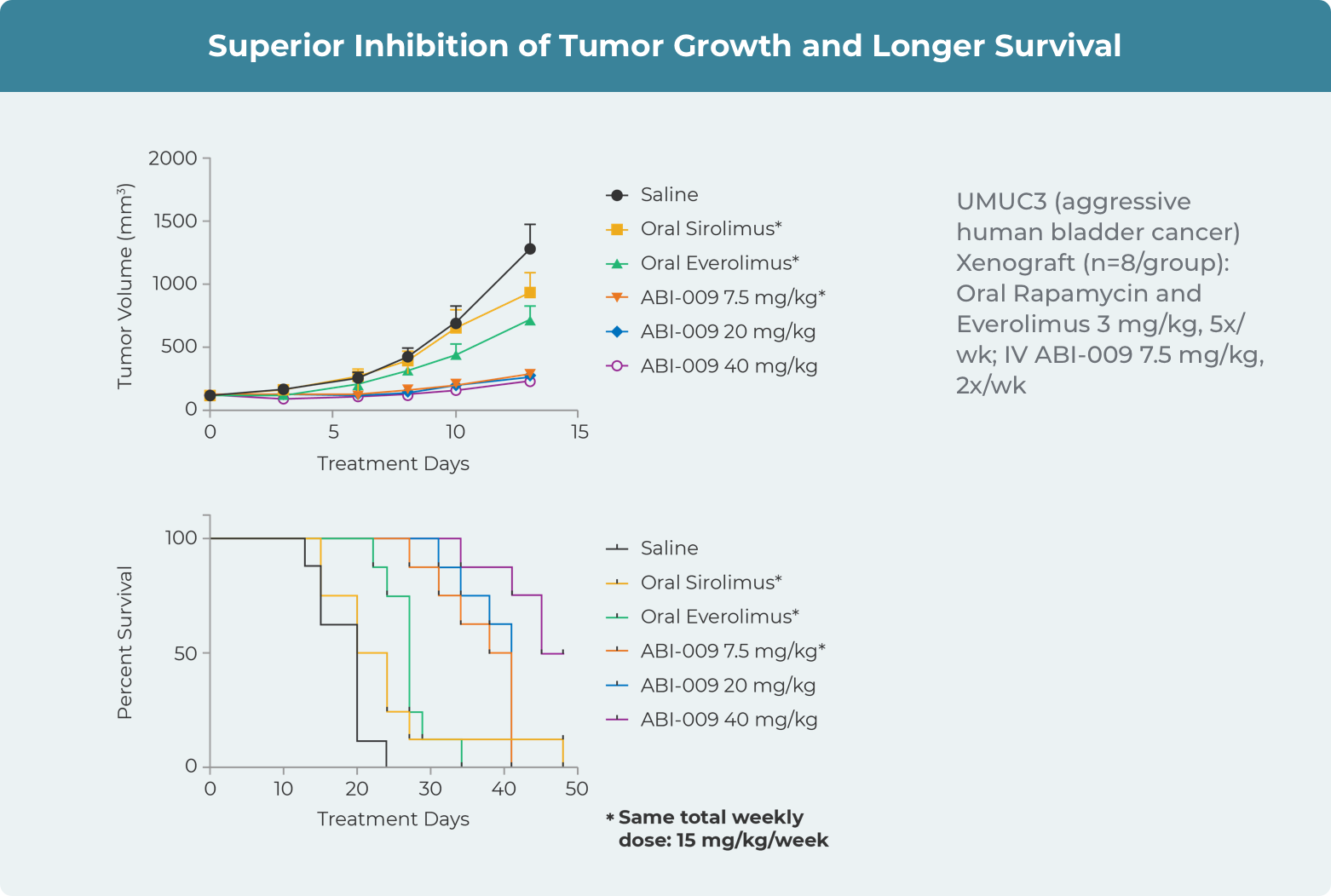Inactivating alterations in TSC1 and TSC2 drive mTOR pathway activation and tumor growth
- TSC1 and TSC2 form a tumor suppressor complex that down regulates mTOR activity
- TSC1 and TSC2 alterations occur across a broad range of cancers including bladder cancer, kidney cancer, breast cancer, melanoma, and liver cancer
- No therapies are approved for TSC1 and TSC2 alterations but numerous case reports show durable responses to mTOR inhibition
- Standard CLIA-certified NGS panels already capture TSC1 and TSC2 alterations
Proposed rationale for nab-sirolimus use in patients with tumor-agnostic TSC1 and TSC2 inactivating alterations
- Exploratory analysis of data in our AMPECT trial suggest responses to nab-sirolimus may occur in patients with TSC1 or TSC2 alterations
- Data was generated in non-PEComa patients with TSC1 or TSC2 alterations in the ongoing Expanded Access Program (ASCO 2021 Abstract #339405)
- In preclinical animal models, nab technology demonstrates greater mTOR pathway inhibition compared to currently approved mTOR inhibitors
Aadi has initiated a registrational trial in Tumor-Agnostic TSC1 & TSC2 Alterations: Learn more
